#boycott quirky culture
Note
I’m not saying death note is one big hate crime and we all should just toss it and never read it, no, I would never, but would you agree there’s something ableist about decision to make L/Near “off-putting” and “weird” “not suiting society at all” almost “the freak” characters by giving they’d autistic traits? And I tried to look into it and it seems creators didn’t see it this way, imo it makes it worse. Or how the fandom made those into silly quirky things they do, so adorable and cute and it has infantilization vibes all over. I never saw anyone with similar thoughts here and I asking if I make even a tiny bit sense? Or am I just looking for problems? I really don’t want to get death note cancelled or boycott, I’m just noticing things I hadn’t before
I think you're looking at an issue that goes a lot deeper than Death Note. The quirky genius archetype is old as dirt and Death Note is really just playing into a trope that has existed since forever - part of L's autistic traits are just directly ripped from Sherlock Holmes.
So I wouldn't really single DN out for going with something that is so all-encompassing in pop culture all over - it's certainly not the most reflected use of the trope (and some things Ohba and Obata have said about L and Near read kind of off-color when you think of it as commentary on autism) but it's also well within the margin of what was, and still is, extremely normal in media.
I don't think O&O had any conscious thought about neurodivergence when writing these characters, they were just pulling from the pop-culture hivemind and adding their own quirky geniuses to the list.
Personally, I wouldn't say the trope is horrid in itself.
There are certainly bad renditions of it, but like... look at how beloved L and Near are among neurodivergent readers who very much see themselves represented in them! On the scale of offensiveness, I'd argue they rank mid to low in this context - especially L is clearly a character beloved by readers of all kinds and meant to be so.
So tl;dr: there should be more broad and thoughtful representation of the neurodivergence than the 'quirky genius', but I don't think it's necessary to single out Death Note for something tons of stories have done and continue to do.
Though I'd also say it's a good thing to be aware of the tropes, their prevalence, and their individual executions ofc!
25 notes
·
View notes
Text
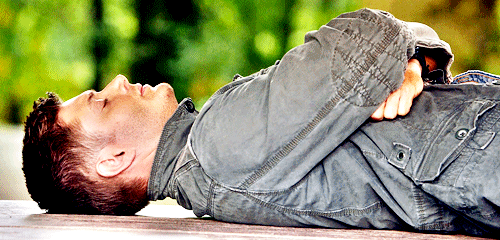
Really pulled up the station movements the last few years and Gray truly has been busy. Nexstar has chipped at things here or there but is mostly acting its average.
Atlanta buying back clusters of stations via Gray from Meredith is a bit of a ... choice. There's generally a freeze on buying stations right now, and many are happy to sell, because the future of classic broadcast is so rocky.
Gray doesn't directly influence SPN or Nexstar, but one has to understand how these type of territories work. While Nexstar's individual products often cater to conservative markets--whether that be its fantasy football leagues or its mormon coverage areas--but even to the tepid centrism that say, walker appeals to, yeah. That red painted up as purple in US skewed politics.
I tried to explain that Austin and Houston may both be texas but they're not remotely the same film scene. Austin airs towards western quirky white liberalism. Houston is part of the black progressive and rebel scene and hoops into the Atlanta circuit.
Like, these aren't the same syndicates in production. Even transplants, like the All American directors, still carry that Atlanta spark in their style and story, but it's different when that entire spirit can shape productions.
Nexstar services Austin. Grays services Houston. And this is the real divide here.
The thing is, some markets they share--one may own ABC and another NBC, or whatever. They can't just scorched earth each other's products. Nexstar is still catching content now FROM Atlanta and Grays pumps it to culturally minority-strong cities like detroit via Grays.
And, yknow, Nbc just invested like a gagillion dollars to build a 4000 employee studio considered of industry wide seminal importance to be done by June 2023. so. there's that. good luck nexstar. cuz. that's grays. its all grays. nbc's hugeass atlanta plans. all grays. the cities. all grays. several of the local studios and production houses. you get the gist.
What this really makes for is a shift in the public TV horizon. The original UPN-WB merger ripped TBS into cable and stripped Peachtree for parts that were already being cannibalized by competitors, or otherwise smaller sisters that were just buried in the scale of the war games.
After the boycott kneecapped CW at years end and screwed their entire tax evasion game only to persist another year, WB gave in and folded its share, as did CBS. The label as a primetime slot stays alive for both while Nexstar does whatever with the daytime noise we don't care about. Nexstar just sets the performance demands.
WB pulled back its executives from the burned stove, fired its board and now let executive creatives pull the shots assuming they pull profit.
Atlanta is centralized as a bit of a silent superstation again with WB claws pulled out of the local, but instead, WB on a leash asking them for help to not lose its tv markets, basically. Atlanta bout to dogwalk WB.
Especially with Winchesters and Gotham going that way. CBS and Walker brand are playing more into the nexstar and west coast syndicates that come by way of austin and everything past.
Jensen and Danneel have chosen a different playground. So I'm just. laying here thinking on all these interesting choices. Sure, Nexstar claimed space to feed grammas stupid daytime TV but. whatever.
Its a power dynamic shift I don't think anyone's really ... cared enough to understand. But they should.
Give it 2 years. watch the ghost of broadcast non-cable TBS past return to primetime TV slowly, or at least until streaming conversion options are decided.'
youtube
10 notes
·
View notes
Text
Captain Marvel Goes Higher Further Faster
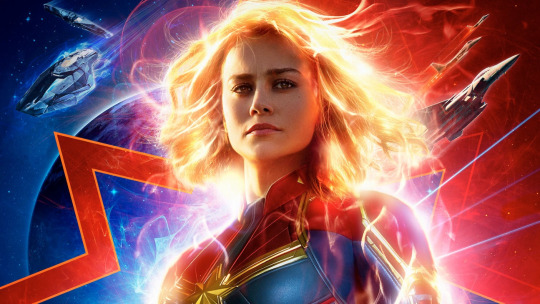
The MCU has once again delivered an outstanding adventure filled film but this time, a female is leading the way. Captain Marvel is a feminist driven film filled with messages of female empowerment, refugees and some more female empowerment. The breathtaking cinematography, powerful performances, emotional story and nostalgic trip back to the 90s creates my new favourite film. The critiques and boycotts of the film however are proof of how much harder it is to be a woman in this world. Brie Larson is a warrior as Captain Marvel, as just one week after the release of the film she is already inspiring thousands of young girls all over the world to believe that they are superheroes themselves.
First of all the performances in this film are incredible. Samuel L Jackson once again shines as Nick Fury however this time we see him before he knew about aliens and superheroes AND we finally get to see what happened to his eye (love Goose). His chemistry with Brie is adorable both on and off screen and I really hope we see them together again (surely she saves him in Avengers Endgame). Jude Law and Gemma Chan play great Kree characters and I love that they cast an Asian women for this role. One of the stand out performances of the film was Lashana Lynch as Maria Rambeau. Her badass pilot abilities, her adorable relationship with her daughter and her fierce friendship with Carol makes her one of the toughest characters in the film and she brought raw emotion to the story. Brie of course was outstanding as Carol Danvers. Her witty personality, quirky facial expressions and her immensely strong power creates a powerful yet relatable superhero. She is a warrior who fights for all women as she inspires and leads the MCU into a new phase.
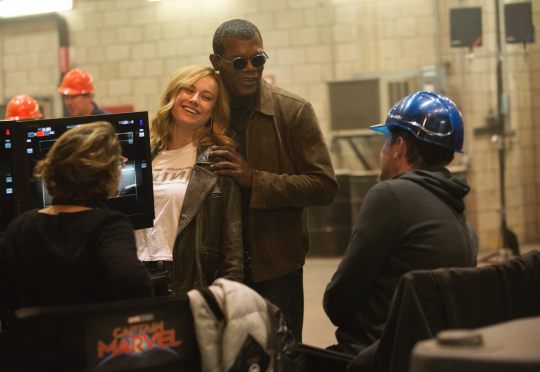
One of my favourite aspects of the film was the cinematography. There is a really subtle tint to the screen to create the nostalgic look of the 90s but it doesn’t look tacky or fake, it just looks amazing. Some of the shots in this film are breathtaking. My personal favourite was when the Skrulls are looking into Carol’s memories and one says “open her up”, meaning her mind, however the shot shows Carol, the air force pilot walking towards the opening doors of the air force base. I actually held my breath during that shot. The film also uses slow motion a bit but really subtly, It doesn’t look tacky or over dramatic like in some of the DC films, it just gives the audience an extra moment to appreciate what they’re seeing on the screen.

One of the surprising aspects of the story was about the Skrulls (warning spoilers ahead). In the trailer and the beginning of the film, the skrulls (green aliens with australian accents) are presented as the bad guys. They follow Carol to Earth and Carol who has been trained by the Kree believe she needs to stop them from infiltrating Earth. However when Carol listens to the black box and learns about how she crashed and got her powers and the Kree are actually the bad guys on the side of an unjust war, she opts to help the Skrulls. The Skrulls reunite with their family as Carol helps them find a home and the rest of their kind. This is a powerful message especially to America in 2019 who are being force fed ideas by the Trump administration that mexicans, islam and other non-american ethnic groups are criminals and are infiltrating the USA. Whereas the actual reality is that they are refugees just like the Skrulls and they are looking for a home. Americans often see people who don’t look like them as ‘aliens’ rather than respecting them and understanding that not everyone is a white American. This all sounds very political but the main message from this aspect of the story is to not fight unjust wars, but to end them and to respect people from other ethnic backgrounds.

The main message and most powerful one in the film is about Carol discovering her true potential and not letting anyone tell her what she cannot do. Right from the beginning of the film, Yon-Rogg is constantly telling Carol to control her power and her emotions. During the Kree’s first mission in the film, Carol says what she plans to do and he tells her no. He always keeps telling her that he wants her to be the best version of herself. Once Carol learns that the explosion, not the Kree gave her her powers and that if she takes off the controller on her neck she will unleash her full power, she stands up to anyone whoever told her what she cannot do. I love that there is also no final fight in this film. Yon-Rogg tries to start one by saying that she should fight him without using her powers but she blasts him before he can finish his sentence. This is a powerful moment as she states “I have nothing to prove to you”. The audience clearly sees the potential of carol’s power throughout the film and therefore she does not need some big final fight to prove anything. People often hold women up to extremely high expectations in order to prove they can sit at the table with men. However this film shows that audiences need to start looking at women with the same amount of expectations and respect as men. That is feminism, it is about equality.
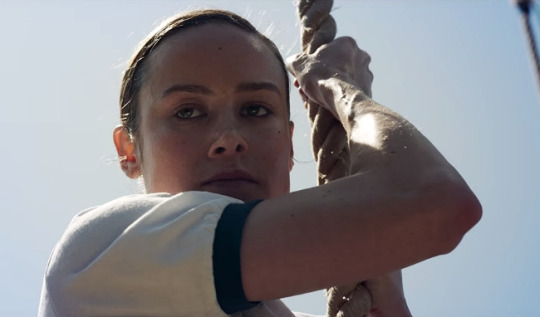
One of the things that I really loved about this film is that Carol was not sexualised at any point during the movie. There was no revealing outfits or comments about her appearance and there was no romantic relationship. This is actually groundbreaking and very rare especially for a female led film. Some people, like Wonder Woman, find their power in their sexuality and that is an extremely valid fight for feminism so that they can focus on their appearance but not do it for men and still get the same amount of respect. However others, like Captain Marvel, don’t find their power in their sexuality and don’t want to have to dress up or wear makeup etc. Different things empower different women. However I feel like Hollywood only likes to show the former side of feminism and male audiences tend to accept female led films more when they are ‘sexy’ and this can be dangerous as it creates misconceptions about feminism in a culture where sexual violence against women is endemic. So for Captain Marvel to not wear revealing outfits, have perfect hair and makeup and not have any hints at a romantic relationship during the film is a powerful step for feminism.
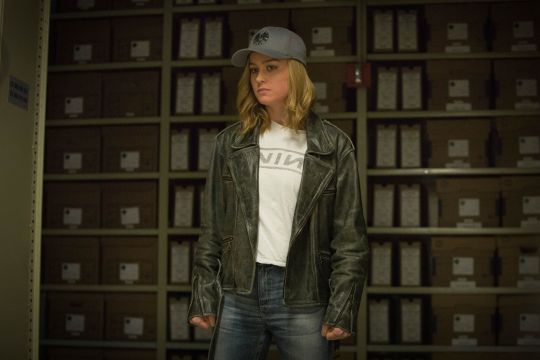
The response from the white male fans of the MCU about this film prove how far we have to go in order to achieve gender equality. Some were angry that Brie said the film wasn’t for them, others claimed she was too powerful and it wasn’t realistic or that the film was too political. Others simply saw a female led film and heard it was a feminist movie and said they weren’t interested. First of all, Thor is literally a God, the Hulk is virtually indestructible and yet they never had a problem with their power? Also too political? Iron Man was about US sponsored war, Infinity War was about overpopulation and Captain America in the 1940s fought the Nazis and in the 2010s fought against government surveillance. I mean the film is literally called Captain America: Civil War but yet Captain Marvel is suddenly too political. The only difference here is that she is a woman. Some men absolutely cannot stand when even one out of 21 things is not 100% created for them. I love that Captain Marvel is a woman and it is a huge part of her power and fighting for feminism and inspiring young girls is a massive part of this film. However that does not mean it is not for men. I grew up looking up to characters such as Harry Potter, Frodo and Iron Man and Captain America. I did not have to be a boy to be inspired by them so why can’t men do the same with Captain Marvel? If men only look at Captain Marvel and see a pair of breasts then they are the main problem. I hope this incredible film continues to inspire both young girls AND boys to be superheroes and fight for gender equality just like Brie as Captain Marvel does.

#captain marvel#film#brie larson#marvel#mcu#avengers#carol danvers#captain america#feminism#gender equality
25 notes
·
View notes
Text
All a' y'all be like "cringe culture is dead" until some kid wants to shop at Hot Topic huh. Bitch boycott the actual store all you want, it's a corporation, no doubt they support shitty things. But unless they're hurting people, don't bully teens who wanna be quirky and wear anime merch. Let them live their fucking lives geez
1 note
·
View note
Link
As long as she can remember, Annabelle Charbit has loathed “stuff.” She hated birthdays because birthdays meant gifts. And gifts meant finding a way to toss them.
At 5 years old, Charbit would sneak toys into her younger brother’s room. By age 10, she was stashing her belongings in alleys around her London neighborhood. At 13, she discovered charity stores, smuggling bags past her parents and out the door.
Living on her own in her twenties, Charbit, now 41, continued her spartan ways, eschewing even lamps. “I would be in semi-darkness,” she says.
Currently a neuroscience researcher at the University of California, San Francisco, Charbit was obsessively decluttering before the word really existed in popular culture. Google Ngram, which charts the use of certain words in book titles, shows that “declutter” first came into use in the 1970s, its popularity shooting up through the ’80s, ’90s, and the first decade of the 21st century. According to Oxford University Press, the term was only added to the 20-volume Oxford English Dictionary in June 2015. Today, women’s magazines routinely urge readers to purge; personal organizers offer to coach clients in their pursuit of minimalist perfection; earlier this year, Marie Kondo’s book The Life-Changing Magic of Tidying Up, which promises to help people achieve “the unique magic of a tidy home,” became a bestseller. But for some people, the cultural embrace of decluttering can provide cover for more problematic behavior.
“Do we just assume that decluttering is a good thing because it’s the opposite of hoarding?” says Vivien Diller, a psychologist in New York who has worked with patients like Charbit who compulsively rid themselves of their possessions. “Being organized and throwing things out and being efficient is applauded in our society because it is productive. But you take somebody who cannot tolerate mess or cannot sit still without cleaning or throwing things out, and we’re talking about a symptom.”
Both cleaning and decluttering can become a problem when they’re driven by obsessive thoughts.
Unlike hoarding, which was officially reclassified as a disorder in 2013, compulsive decluttering doesn’t appear as its own entry in the Diagnostic and Statistical Manual (DSM); instead, it’s typically considered a manifestation of obsessive-compulsive disorder. “I see it all the time. People rarely come into my office because they have a problem with being too efficient or wanting to declutter,” Diller says, but the problem usually makes itself known in other ways: “They’re not sleeping at night and they’re feeling jittery and irritable … they’ll sit in my office and straighten my pillows. They’re not comfortable until everything is in order.”
Scientists still aren’t sure exactly what causes OCD, which is typically treated with therapy and medication. What they do know is that the condition causes sufferers to lock onto distressing thoughts (obsession), generating anxiety that can only be soothed by performing a particular act (compulsion). “By doing the ritual, you get temporary relief, and then that cements you into doing the ritual,” says Michael Jenike, a professor of psychiatry at Harvard Medical School and the founder of the OCD treatment program at Massachusetts General Hospital. “So you do it again and again.”
Diller’s compulsive-decluttering patients, she says, sometimes describe “this tightness in their chest if they see things that should be thrown out,” one that can be eased only by getting rid of the offending objects.
“Any behavior can technically become a problem when it starts having an obsessive and compulsive nature. Even [otherwise] healthy behavior,” says Jennifer Baumgartner, a clinical psychologist in the Washington, D.C. area who has worked with patients who suffer from obsessive-compulsive cleaning. Both cleaning and decluttering can be positive behaviors, she says, but become a problem when they’re driven by obsessive thoughts.
One day in 2010, Charbit, then a neuroscience graduate student at University College London, Googled “the opposite of hoarding” and “clutter phobia.” She was in the process of writing a novel about a woman who suffers from the same compulsions as Charbit herself (the novel, A Life Lived Ridiculously, was published in 2012) and wasn’t sure how to describe her character’s symptoms—there’s no official term for compulsive decluttering. “I was a grown adult, fully medicated, with plenty of insight … but with no name for [the behavior],” says Charbit, who began taking medication for OCD at age 18. Her search led her to an article on “obsessive-compulsive spartanism,” she recalls. Clicking it open, she immediately recognized her own experience.
For Charbit, the thoughts began within seconds of waking up each day. “You have a few seconds of peace,” she says. “Then it all comes flooding: The anxiety, the dread … It's that constant nagging. You never reach a point where you're satisfied.” Even now, after years of treatment, “I would rather throw something out and buy it again than keep it.” The medication helps, she says, but it hasn’t stopped her from discarding and re-buying a food processor three times. “And don’t even tell me to recount how many books I tossed, only to go to Amazon and repurchase them.”
The cultural embrace of decluttering makes it harder for those who do it compulsively to seek help.
The author Helen Barbour, who blogs at The Reluctant Perfectionist and wrote The A to Z of Normal, a novel about OCD, believes the cultural embrace of decluttering makes it harder for those who do it compulsively to seek help. “[People] see my tidy home and sigh about the fact that theirs is a dump,” says Barbour, who was diagnosed with OCD in 1995. “What they don’t realize is how long it has taken me to order everything with millimeter precision, or the anxiety I feel at things being even slightly out of position.” Barbour lives alone, in part, she says, because her long-term partner is “the king of stuff.”
Barbour also found a supportive community online when she wrote a blog postabout her compulsive decluttering last February. “Sorting and rearranging helps a little,” she wrote, “and getting rid of just one or two things can also temporarily alleviate the feeling.” Commenters responded with their own experiences: “I get a physical sensation as though I’m being crushed when I have too many things around me,” one wrote. “To say I hate clutter is an understatement … it literally feels like gears grinding in my head,” said another.
Lesley Turner, a 58-year-old woman from Wales, can relate. “I have to do these things,” she says, “or my head is in turmoil.” In 2013, she and her daughter Tuesday, now 25, appeared on the U.K. reality show Obsessive Compulsive Cleaners, in which people who suffer from compulsive decluttering clean the homes of people with hoarding disorder. Lesley says that the show’s producers pitched it to her and her daughter, both of whom suffer from OCD, as a chance to “push our boundaries,” but both women were dismayed with the episode that ultimately aired. “It made it look like a nice, fun, quirky thing to have, not the serious, completely life-consuming illness that it is,” Tuesday says. Earlier this year, after Lesley told the British newspaper Metro that the experience left them “traumatized,” the advocacy-organization OCD U.K. released a statementcondemning the show and calling for its boycott.
All pathologies have a spectrum from normal to symptomatic, Diller says, and decluttering is no exception. Barbour considers herself on the “mild end of the spectrum.” Charbit, now married and the mother of a 2-year-old and a 4-year-old, says she’s able to cope with her family’s possessions by “creating little compartments in my life [that] are exactly as I want them to be,” like her closet: “I always, at any one time, have just three pairs of shoes,” she says. “One pair of sneakers, one pair of flats, and one pair of sandals.”
The Turners, who refuse to allow anyone in their house—“I just want my big, clean, sterile home,” Lesley says—are more severe cases. Lesley is currently taking medication; Tuesday is on a waiting list for OCD group therapy. Both women hope their TV experience will at the very least increase public awareness of their particular form of OCD.
“I think when you see someone who’s a hoarder,” Tuesday says, “you see that there’s [a disorder]. Whereas if they saw our house, they would see that there’s nothing in there; it’s really, really clean. And I think people would just think that it was a nice, clean house.”
#obsessive compulsive disorder#ocd#mental illness#hoarder#hoarding#article#psychology#ref#anxiety#long post#text post
1 note
·
View note